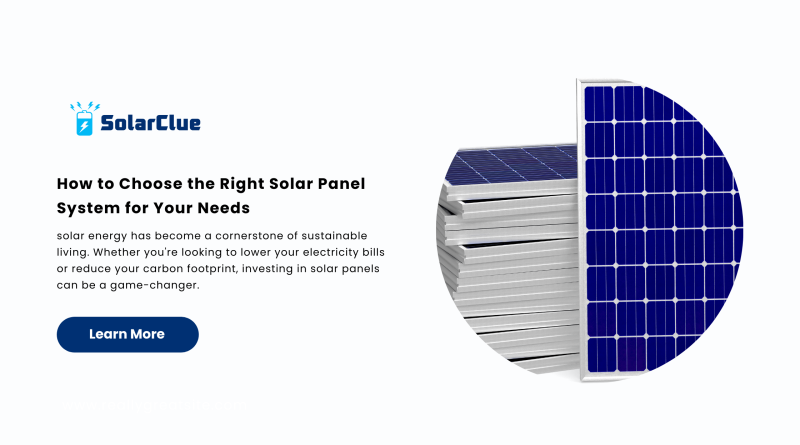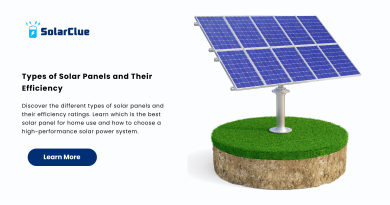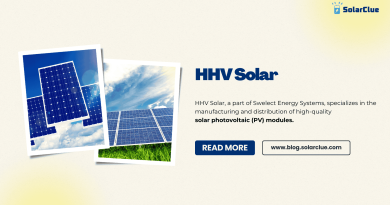How to Choose the Right Solar Panel System for Your Needs
In a world increasingly driven by renewable energy, solar energy has become a cornerstone of sustainable living. Whether you’re looking to lower your electricity bills or reduce your carbon footprint, investing in solar panels can be a game-changer. However, the wide variety of solar products for home can make it challenging to choose the right solar power system for your needs. This guide will walk you through all the critical factors to consider, from solar panel price to system types, ensuring you make an informed decision.
Table of Contents
- 1 Understand Your Energy Requirements
- 2 Types of Solar Panels
- 3 Evaluate the Cost of Solar Panels
- 4 Choose a Suitable Solar Power System for Your Home
- 5 Installation Considerations
- 6 Foldable Solar Panels for Portable Needs
- 7 Calculate Your ROI and Savings
- 8 Take Advantage of Solar Incentives
- 9 Common Mistakes to Avoid When Choosing Solar Panels
- 10 Consult with Experts
- 11 Conclusion
- 12 FAQs
Understand Your Energy Requirements
When choosing solar panels for home, it’s essential to first understand your current and future energy needs.
1. Assessing Current Energy Usage:
Gather your electricity bills to determine how much energy you consume each month. This helps you select a system size that can meet your requirements.
2. Calculating Future Energy Needs:
Consider upcoming lifestyle changes. If you plan to add electric vehicles or new appliances, your energy needs may increase, requiring a larger solar power system.
Types of Solar Panels
Understanding the types of solar panels available can help you choose the right one for your budget and efficiency goals.
1. Monocrystalline Solar Panels:
Known for high efficiency and durability, but they come at a higher solar panel price.
2. Polycrystalline Solar Panels:
These are more affordable than monocrystalline panels but slightly less efficient.
3. Thin-Film Solar Panels:
Lightweight and flexible, ideal for unique applications but with lower efficiency.
Each type has its pros and cons, so balance efficiency and solar plate price based on your needs.
Evaluate the Cost of Solar Panels
Understanding the cost factors of solar panels helps you plan your budget effectively.
1. Understanding solar panel price: Prices can vary depending on the brand, efficiency, and type of solar panels you choose.
2. Factors influencing solar plate price and photovoltaic panels price include the materials used, manufacturer reputation, and system capacity.
3. While upfront costs may seem high, investing in quality solar products for home can lead to substantial long-term savings.
Choose a Suitable Solar Power System for Your Home
Selecting the right solar power system depends on your location, energy needs, and budget.
1. Grid-Tied Solar Power Systems:
These systems are connected to the local electricity grid, allowing you to draw power when needed and sell excess energy back to the grid.
2. Off-Grid Solar Systems:
Ideal for remote areas, these systems operate independently from the grid but require battery storage.
3. Hybrid Systems:
Combining both grid-tied and off-grid features, hybrid systems provide flexibility and backup power.
Installation Considerations
Proper installation is key to maximizing the efficiency of your solar panels.
1. Finding a Certified Installer:
Hiring a certified professional ensures that your system is safely and correctly installed.
2. Site Evaluation:
Professionals will assess your property’s layout, roof angle, and shading to determine optimal solar panel placement.
3. Maintenance Planning:
Schedule regular maintenance to keep your system functioning efficiently.
Foldable Solar Panels for Portable Needs
For those who require portable energy solutions, foldable solar panels are an excellent option.
What are Foldable Solar Panels?
These are lightweight and portable panels designed for on-the-go use.
Benefits:
Perfect for camping, RV trips, and other outdoor activities. They offer convenience without compromising on solar energy output.
When to Choose Foldable Panels:
Ideal for temporary setups or situations where mobility is important.
Calculate Your ROI and Savings
Investing in solar panels offers significant financial benefits in the long run.
1. Estimating Long-Term Savings:
You can reduce your electricity bills by up to 70% with the right system.
2. Break-Even Point:
Most homeowners recover their investment in solar products for home within 5 to 10 years.
3. Government Incentives:
Take advantage of federal and state rebates to offset your solar panel price.
Take Advantage of Solar Incentives
Several financial incentives can make switching to solar energy more affordable.
1. Federal Tax Credits:
These can significantly reduce your upfront costs.
2. State and Local Rebates:
Additional rebates may be available depending on your location.
3. Net Metering:
Sell excess solar energy back to the grid for extra savings.
Common Mistakes to Avoid When Choosing Solar Panels
Avoid these common pitfalls to ensure a smooth transition to solar energy.
1. Overestimating or Underestimating Energy Needs:
Accurately assess your energy usage to choose the right system size.
2. Choosing Low-Quality Solar Products:
Investing in high-quality solar panels ensures long-term reliability.
3. Ignoring Warranties:
Make sure your system includes both performance and product warranties.
Consult with Experts
Seeking professional advice can help you make the best decision for your home.
1. Energy Consultants:
They can evaluate your property’s energy requirements and recommend the most suitable solar power system.
2. Customized Solutions:
Professionals can tailor a solution to fit your unique needs and budget.
Conclusion
Selecting the right solar panel system doesn’t have to be difficult. By assessing your needs, understanding your options, and working with experts, you can maximize the benefits of solar energy for your home. Investing in solar products for home is a long-term commitment that can reduce your energy bills and promote environmental sustainability.
FAQs
1. What is the average solar panel price for home use?
The solar panel price varies depending on factors like type, brand, and capacity. Monocrystalline panels, for example, tend to cost more than polycrystalline panels but offer higher efficiency.
2. Are foldable solar panels a good investment?
Foldable solar panels are great for portability and temporary setups. They’re ideal for camping, RVs, or outdoor events but may not be sufficient for permanent home installations.
3. How much can I save on my electricity bill with solar panels?
Savings depend on your energy usage, system size, and local utility rates. Many homeowners see up to a 70% reduction in electricity bills after installing solar panels for home use.
4. What factors affect the solar plate price?
Factors like material quality, efficiency, manufacturer, and installation costs influence the overall solar plate price.
5. What maintenance is required for solar panels?
Regular cleaning to remove dust and debris is essential. Additionally, occasional inspections can ensure your solar products for home are functioning at optimal efficiency.
If you want to explore the solar product, visit our website



